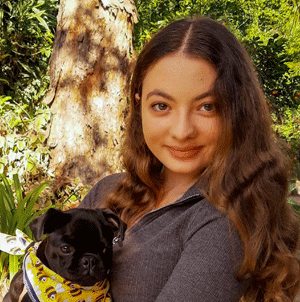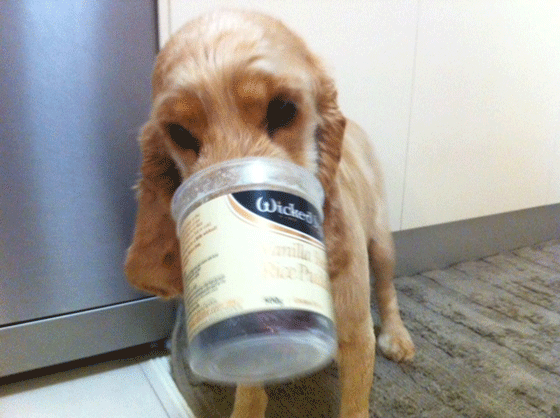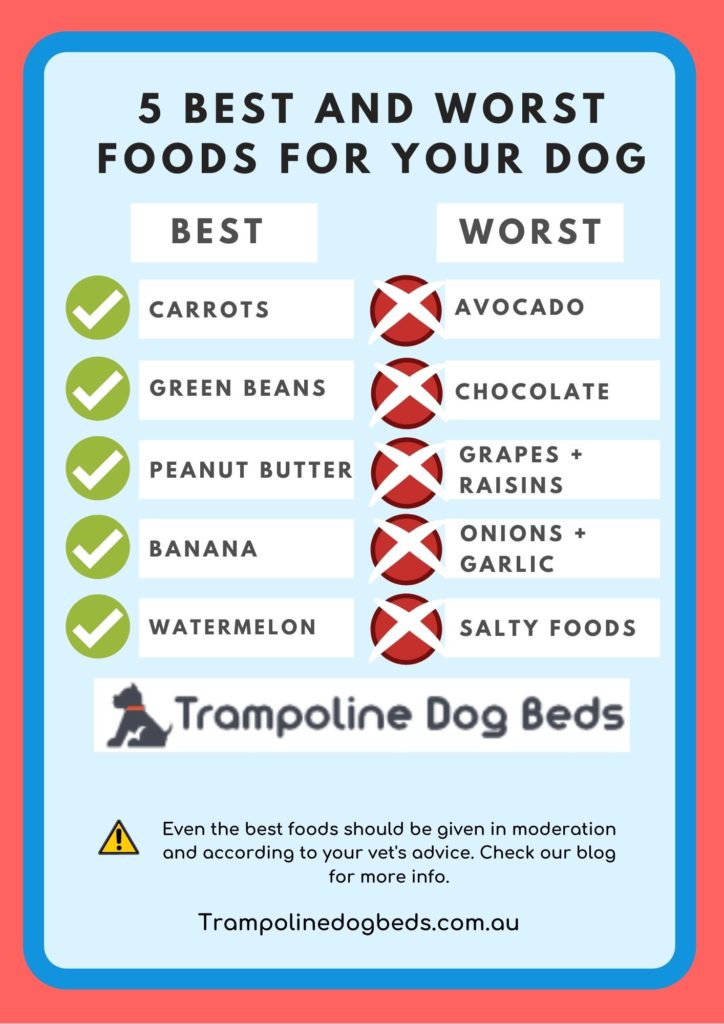Finding balance and nutrition are key for your dog’s health as their diet can improve and prevent illness. But just as the best foods and diets can help a dog, the wrong foods can cause serious illness, poisoning, seizures, vomiting, diarrhoea or even death.
Every dog owner needs to be aware of the best and worst foods for their pet – so here is the lowdown on the 5 best and worst foods for dogs.
As dogs and humans generally consume diets consisting of both plant and meat based foods it can be hard to know, and remember, what foods are ok, and which ones are not safe for your furry friend.
Although some human foods can be great for dogs, they should be consumed in moderation because of the differences in a dog’s digestive system.
We’ve created a free printable list you can easily refer to, to help you remember the best foods for your dog and the ones to avoid!
Dog treats in the pantry
These are some of the best foods you can add to your dog’s diet.
Carrots
When I got my first puppy the top tip my fellow dog owners would share with me was carrots. Not only are carrots extremely healthy but they are a great source of vitamin A.
Carrots can help with teething as well as keeping your dog’s teeth clean. Dogs love an activity and carrots can help keep them entertained and occupied! But remember, only feed your dog carrots in moderation as too much vitamin A can be toxic.
Green Beans
Beans are an amazing alternative treat or snack for your dog because they are packed with vitamins A, B6, C and K and also contain iron, protein and calcium. Green beans are one of my dog’s favourite treats. We introduced him to green beans as a healthy snack when starting him on a diet earlier this year and they’re still the #1 favourite in our house.
Dogs can have almost any type of green beans (raw, cooked or canned) as long as they are plain and free from added salts, sauces and spices. But remember whole beans may be a choking hazard so you might want to monitor as your dog eats them or chop them into small pieces.
Peanut butter
Peanut butter is a dog crowd favourite! The best type of peanut butter for your pup is unsalted because too much salt can be troublesome for dogs and lead to other health issues.
Peanut butter is a great treat as it contains healthy fats, vitamins and protein. But it’s best kept as a treat and consumed in moderation.
Banana
Bananas are another great food for dogs – plus they pair well with peanut butter! Bananas are often used in make-it-yourself dog treat recipes. They’re a good source of potassium as well as vitamins C and B6. Bananas also have a great fibre content which can help dogs with gastrointestinal issues.
As bananas are high in sugar be sure to only feed them to your dog in moderation. Also, keep your dog away from banana peels as they can cause other issues.
Watermelon
Watermelons are a wonderful snack for dogs especially in summer because they have a high water content to keep your dog well hydrated during the hotter months.
Watermelons are also a good source of vitamin A, B6 and C. Just make sure you use seedless watermelon or remove the seeds yourself as they can cause gastrointestinal issues. For the same reason don’t give the rind to your dog.
The worst foods for a dogs
![]() If your dog consumes any of these foods, contact your vet immediately. They need to be avoided completely.
If your dog consumes any of these foods, contact your vet immediately. They need to be avoided completely.
Avocado
Avocados are dangerous to dogs because they contain persin. Persin is found in all parts of the avocado and consuming it can lead to diarrhoea and vomiting.
Chocolate
Chocolate is extremely dangerous for dogs as it is comprised of methylxanthines and theobromine which can cause severe adverse reactions. Some of the symptoms of chocolate poisoning include: vomiting, seizures, tremors, increased heart rate and diarrhoea.
Signs can be delayed and generally show up within 6 to 12 hours after consumption.
Grapes and raisins
Grapes and raisins are toxic for all dogs and even small amounts can lead to fatality. These are some of the signs that your dog might be suffering from grape poisoning: increased thirst, dehydration, weakness, vomiting or diarrhoea.
Onions and Garlic
Onions and garlic are both toxic for dogs. All parts of both onion and garlic are dangerous and can cause anemia in dogs. Symptoms your dog may experience if they ingest onions or garlic are: lethargy, fainting or red coloured urine.
Salty Foods
Foods high in salt can impact your dogs functioning by causing dehydration and urination issues in dogs. Sodium poisoning is also possible. Signs of this may include: vomiting, high temperature or shaking.
There are lots more foods which can be great for dogs and other harmful foods.
Custard, for example is bad because it’s high in lactose which some dogs find difficult to digest and that causes discomfort.
Ice Cream
This can cause problems with gas, bloating, constipation or diarrhea.
For dogs that are overweight, dairy intolerant or have diabetes it’s a treat to stay away from.
A little plain vanilla can be ok for some dogs but don’t be tempted to try your dog with sugar-free ice-cream as it may contain xylitol, a sugar substitute which is very dangerous for dogs.
If you are ever unsure about a product, consult your vet.
And remember to always feed your dog in moderation.
Click here to find nutrition for older dogs – the best dog foods and supplements to address your dog’s changing needs as he ages.



